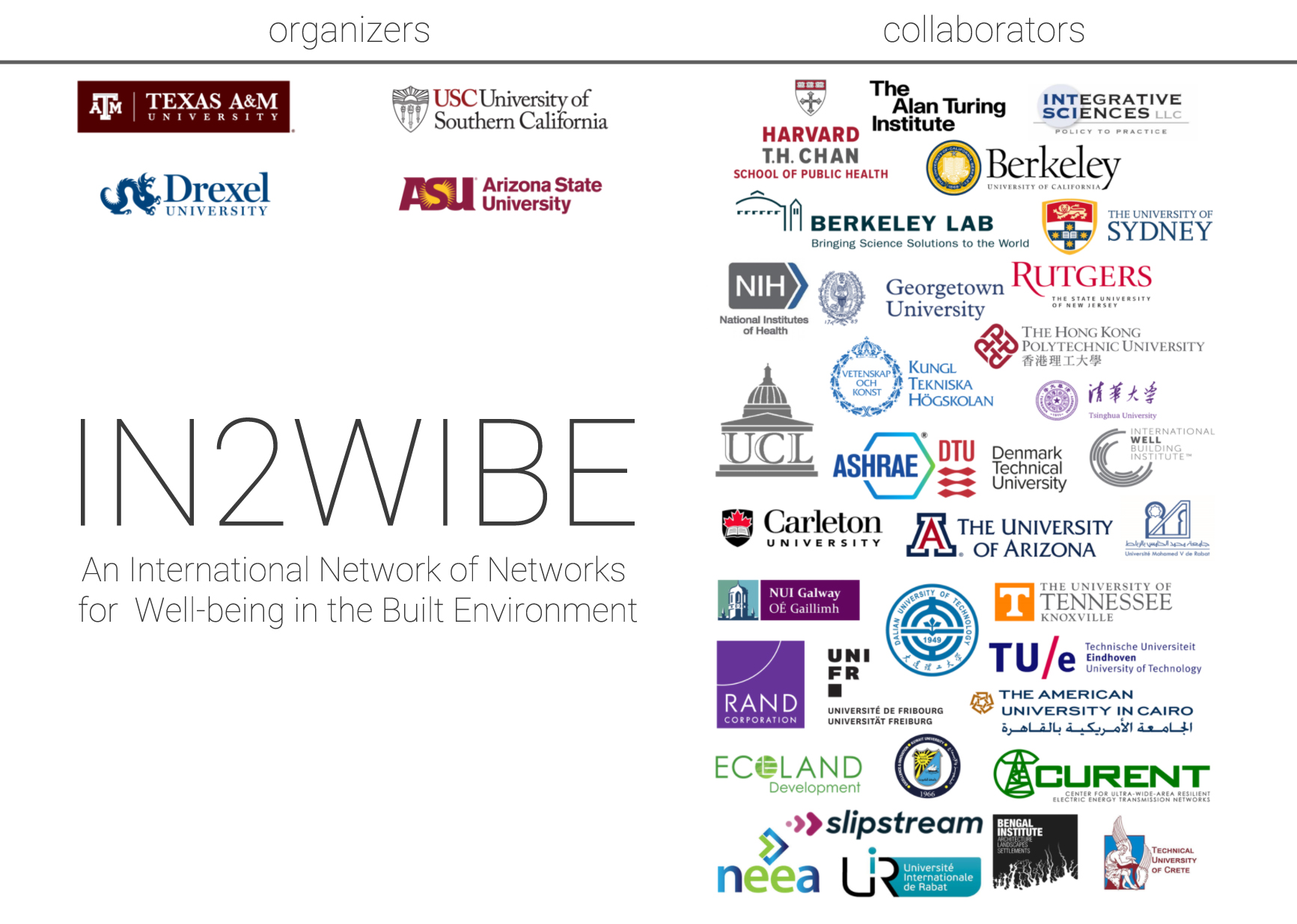SMART CITY
Wellbeing in the built Environment

International Network of Networks for Well-being In the Built Environment
DMLab is participating in an international research team consisting of 34 partners from 17 countries, in order to form an International Network of Networks for Well-being In the Built Environment (IN2WIBE). The project is supported by the National Science Foundation.
At the core of IN2WIBE is a shared understanding that well-being is strongly dependent on the links between the built environment and the personal, cultural, economic, and social forces that drive health, productivity, satisfaction, and comfort.
Research networks on well-being in the built environment exist, however, they are shaped by their institutional, regional, or social contexts and are mostly locally convergent. Well-being in the built environment is a broad research area, and there exist myriad approaches and solutions that emerge from different disciplinary perspectives. These efforts need to be integrated to foster effective, robust, and widely-applicable solutions.
IN2WIBE will connect and educate future building scholars on well-being in buildings while informing better building design, construction, operation, and use. This will be achieved through leveraging resources from 34 existing networks and partners in 5 continents (N. America, Africa, Europe, Australia, and Asia), comprising a total of 17 countries. Through strategically designed activities, IN2WIBE will cultivate and foster connections through the development of community consensus.
TUC team:
School of architecture:
Panagiotis Parthenios, Professor of Digital Technologies in Architectural Design
Valina Geropanta, Assistant Professor of Urban Design with New Technologies
Anna Karagianni, Assistant Professor of Architectural Design
George Achillias, PhD candidate
Nicoleta Chatzopoulou, PhD candidate
School of Electrical and Computer Engineering
Minos Garofalakis, Professor of Computer Science
Katerina Mania, Associate Professor of Multimedia Systems
School of Environmental Engineering
Denia Kolokotsa, Professor of Energy Resources Management

